Khubazi (خبازی) is the common mallow plant (Malva sylvestris), known for its soft leaves and purple flowers.
In traditional Unani, Ayurvedic, and herbal medicine, this plant is famous for its cooling, soothing, and anti-inflammatory effects.
When dried and ground into a fine powder, it is called Khubazi Powder. It can be used internally (taken orally) or externally (applied on the skin).
🌸 Nature (Taseer / Temperament)
In Unani medicine, Khubazi is described as:
-
Cold and moist in temperament
-
Excellent for removing heat and inflammation from the body
-
Helps in soothing irritation of internal organs (like the stomach, throat, lungs, and bladder)
🌼 Main Benefits of Khubazi Powder
1. 🩺 Anti-inflammatory & Pain Relief
-
Reduces swelling, redness, and pain in body tissues.
-
Beneficial for arthritis, joint pain, gout, and muscle inflammation.
-
The mucilage (gel-like substance) in the powder coats tissues and reduces irritation.
2. 🌬️ Supports Respiratory Health
-
Soothes sore throat, dry cough, asthma, and hoarseness of voice.
-
Works as a natural expectorant (helps clear mucus).
-
Traditionally used for bronchitis and chest congestion.
3. 🍽️ Improves Digestive System
-
Soothes gastritis, stomach ulcers, acidity, and constipation.
-
The mucilage forms a soft protective layer in the stomach and intestines.
-
Reduces burning sensation and helps in smooth bowel movements.
4. 💧 Promotes Urinary Health
-
Has a mild diuretic effect — increases urine output, helping flush toxins.
-
Useful for urinary tract infections (UTIs), burning urination, and bladder inflammation.
5. 💆 Good for Skin & Wounds
-
When applied externally, it helps heal acne, boils, burns, rashes, and wounds.
-
Its cooling and anti-inflammatory nature soothes irritated skin.
-
Regular use can reduce pigmentation and dark spots.
6. 🧬 Rich in Antioxidants
-
Contains flavonoids, polyphenols, and vitamins that protect the body from oxidative stress.
-
Strengthens the immune system and helps fight infections.
🍵 How to Use Khubazi Powder
✅ 1. Internal (for oral use)
Dosage:
-
1 to 2 teaspoons (around 5–10 grams) daily.
-
Mix it in warm water, milk, or honey, or add it to herbal tea.
-
Take once or twice daily — preferably after meals.
Uses:
-
For cough or sore throat, mix with honey and warm water.
-
For stomach problems, mix with lukewarm water and drink slowly.
-
For constipation, take with warm milk before sleeping.
✅ 2. External (for skin & wounds)
How to prepare a paste:
-
Mix 1 tablespoon of Khubazi powder with rose water, aloe vera gel, or plain yogurt.
-
Apply to the affected skin area for 15–20 minutes.
-
Rinse with cool water and pat dry.
-
Use 3–4 times a week for best results.
Uses:
-
Acne, boils, burns, insect bites, eczema, and minor wounds.
✅ 3. Decoction / Tea Method
To make Khubazi Tea:
-
Add 1 teaspoon (2–3g) of Khubazi powder to 1 cup of water.
-
Boil for 5–7 minutes, then strain.
-
Drink warm once or twice daily.
This tea helps with:
-
Cough, cold, sore throat, digestive discomfort, or urinary irritation.
⚠️ Precautions
-
Always use moderate doses (do not exceed 20 g per day).
-
Drink plenty of water when using it internally.
-
If you are pregnant, breastfeeding, or have chronic kidney issues, consult a doctor before using.
-
Do a patch test before applying on skin if you have sensitive skin.
-
Store powder in a cool, dry place away from sunlight.

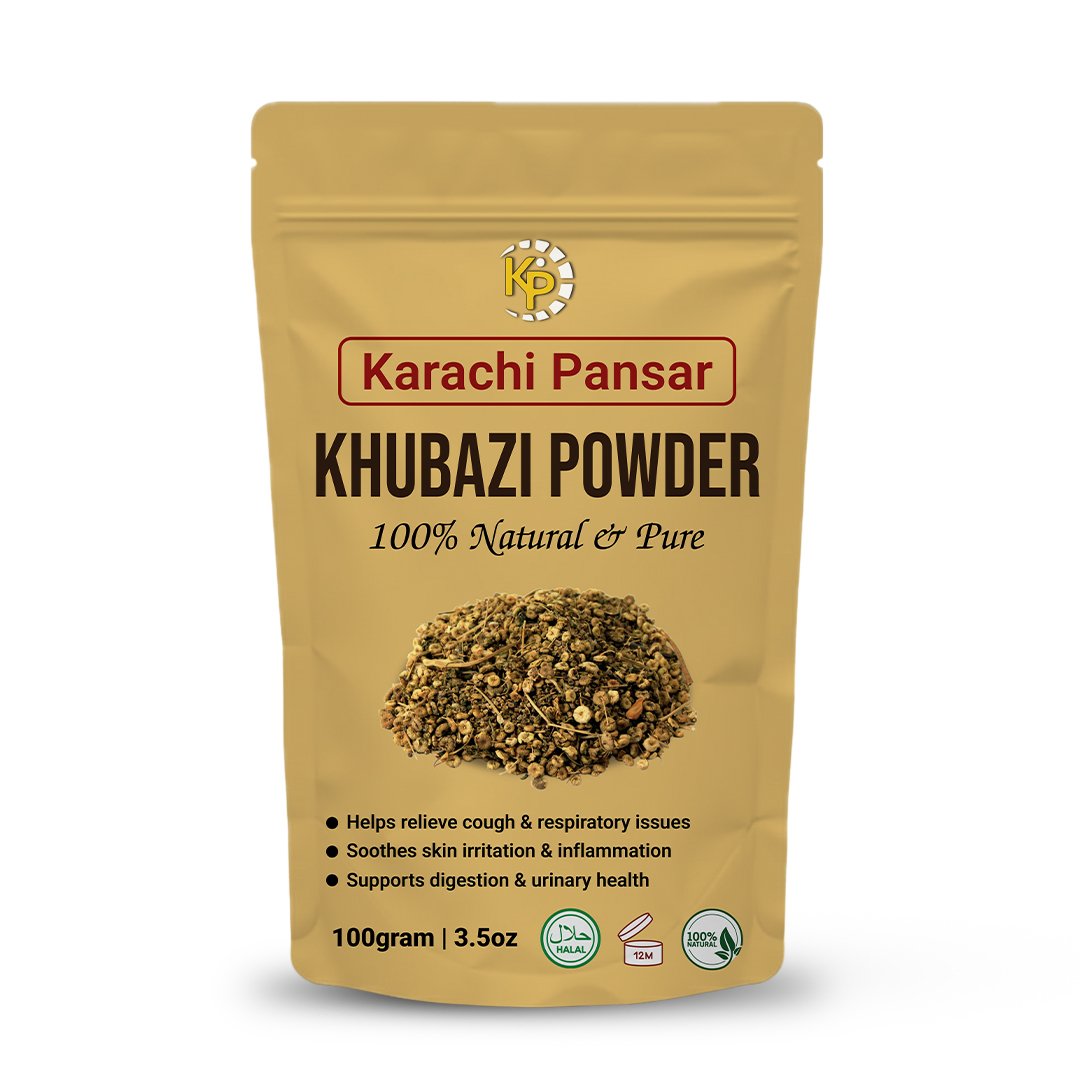
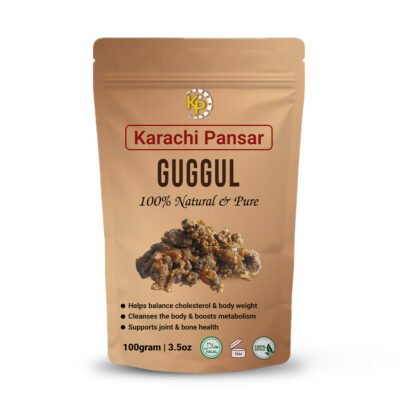
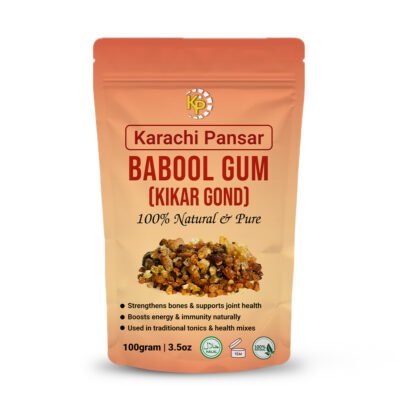
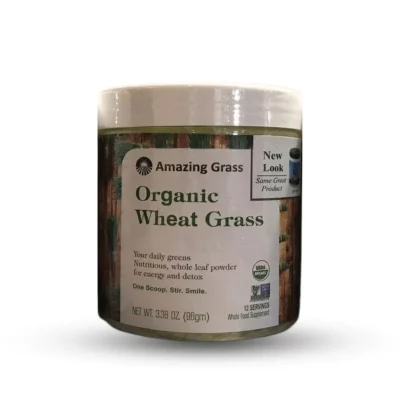


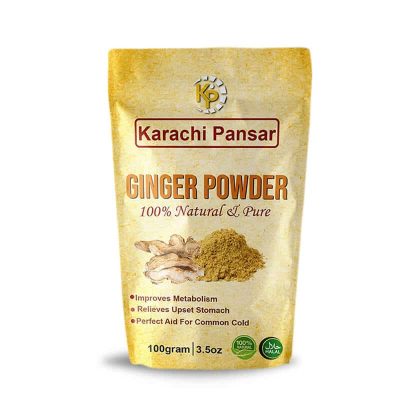
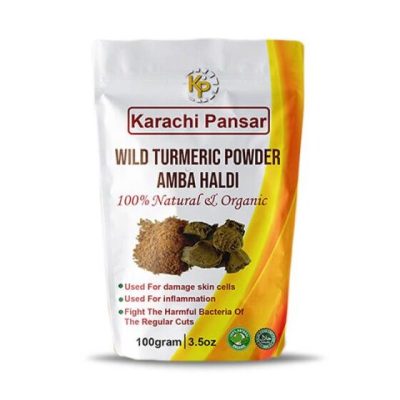
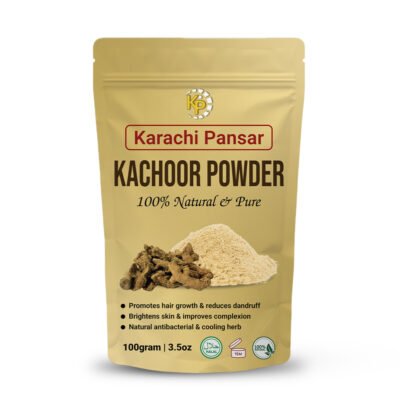
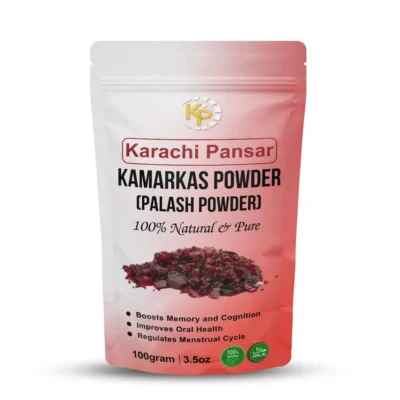
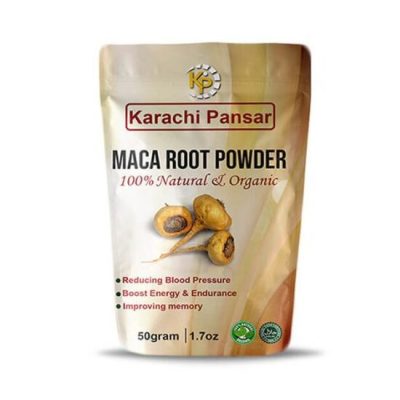
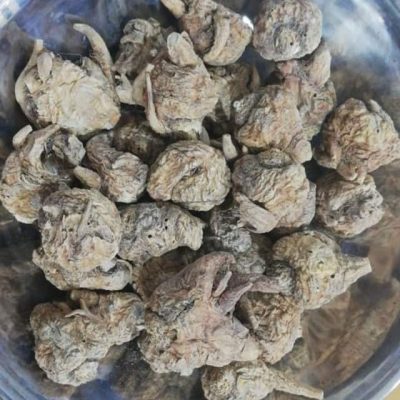
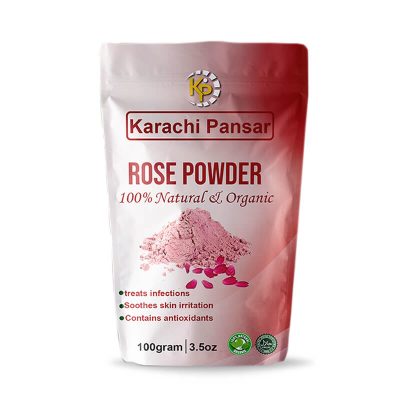
Reviews
There are no reviews yet.